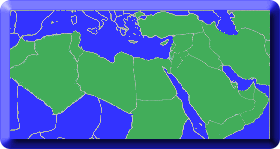
Topics in Middle Eastern and North African Economies
Document Type
Article
Publication Date
5-1-2016
Journal Title
Topics in Middle Eastern and North African Economies
Volume
18
Publisher
Middle East Economic Association and Loyola University Chicago
Abstract
Most of the empirical evidence has shown that the majority of oil dependent countries have the low level of financial development; thus, they are much more volatile and exposed to the oil shocks and the so named “oil curse”. This paper aims to investigate the impact of the Algerian financial system—as one of major oil economies—on the economic growth and escaping the oil curse. Over the past two decades, Algeria has courageously attempted to modernize its financial system despite social strife and challenges posed by the large hydrocarbon sector and an inefficient public sector. In fact, various reforms have been undertaken since the early 1990s to the transition from planned to an open market economy. So, the first section provides the research background based on a theoretical model and a set of empirical studies about financial development and the oil curse. An analytical framework of the Algerian financial system evolution is provided in the second section, focusing on the two phases: 1990-1999 and 2000-2011. Finally, using an econometric growth regression model to test the impact of financial development in Algeria over the period 1980-2014, the preliminary results show that the financial development enhanced economic growth but it has not contributed in reducing the negative effect of oil rents.
Identifier
2334-282X
ISSN
2334-282X
Recommended Citation
Elhannani, Farah Elias; Boussalem, Abou Bakr; and Benbouziane, Mohamed, "Financial Development and the Oil Curse: Evidence from Algeria". Topics in Middle Eastern and North African Economies, electronic journal, 18, Middle East Economic Association and Loyola University Chicago, 2016, http://www.luc.edu/orgs/meea/
Creative Commons License

This work is licensed under a Creative Commons Attribution-Noncommercial-No Derivative Works 3.0 License.
Copyright Statement
© 2016 the authors



Comments
Presentation of the articles in the Topics in Middle Eastern and North African Economies was made possible by a limited license granted to Loyola University Chicago and Middle East Economics Association from the authors who have retained all copyrights in the articles.